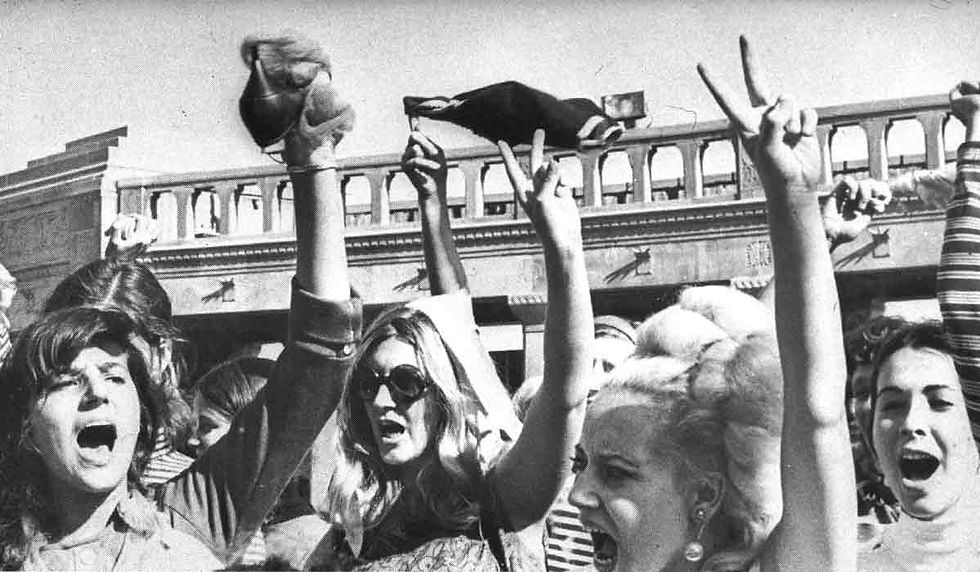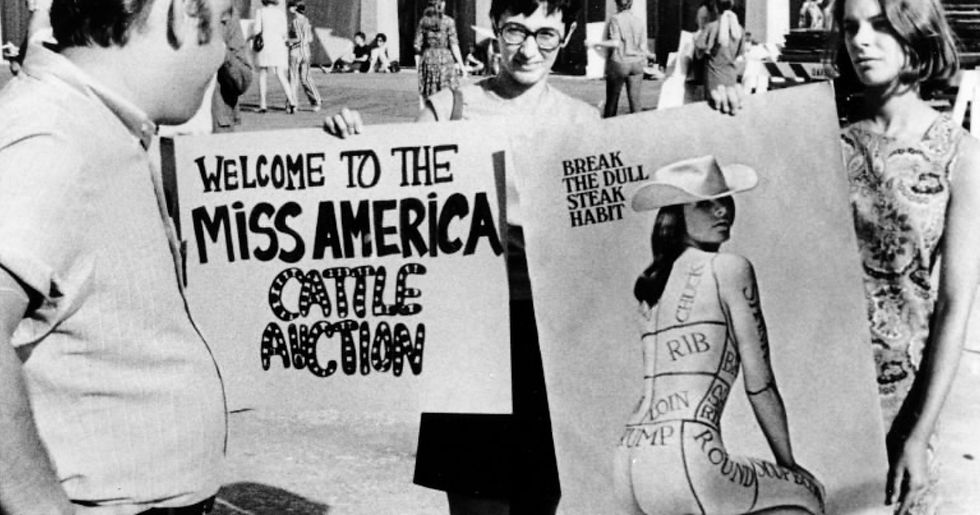Miss America: Then and Now
- Jun 15, 2018
- 3 min read
The Miss America Pageant has been drenched in controversy ever since its establishment in 1921. Thousands of women have competed across America to hold that title, winning mainly because of their physical appearance. In 1968, a protest was held in Atlantic City the day of the pageant. Bras were “burned”, signs were made, and history was changed. However, there are always two sides to every story.
On September 9, 1968, the Miss America Pageant was held in Atlantic City. As women were “celebrated” inside the venue, others protested against the immorality of judging women mostly based on their appearance.
Although this protest defied sexism of single white women, it was not inclusive of African Americans, who were participating in Miss Black America that same day.


A FIGHT AGAINST SEXISM
The Miss America Protest of 1968 is one of the defining moments of this year. It was an example of the rebellious spirit of the 1960s, and the impact of the new wave of feminism in the country. Some memorable moments of the protest were:
Hundreds of women participating
A Freedom Trash Can to dispose any manifestation of female oppression
Banning of men from the premises of the protest
THE BRA-BURNING MYTH
A famous myth that came out of the protest was the “bra-burning” myth. Feminists began to be associated with this act because of the protest. In Atlantic City, women brought items such as bras, false eyelashes, and copies of women’s magazines to throw in the Freedom Trash Can, as a representation of them throwing away symbols of female oppression.
It was said that they burned these items, specifically these bras. However, to debunk this myth, it was reportedly said that fires were not to be started on the boardwalk due to the highly flammable wood used for the structure. Nonetheless, the myth stuck, and feminists were now seen as bra-burning, angry, unshaven women demanding their independence.
6 BLOCKS AWAY
What is less known about the protest is its exclusion of African-Americans.
Miss Black America was held six blocks away at the Ritz-Carlton in Atlantic City on the same night. It was there that 19-year old Saundra Williams was crowned as the 1968 Miss Black America.
African-Americans were not well represented in the Miss America protest. Many women of color believed that Miss America did not represent them, and one of the ten reasons that the protest was held was because of the lack of diversity in the pageant.
Despite the involvement of prominent activists, the main participants were mainly middle-class, white women, which made associating with the protest harder for people of color to do.

CONNECTING TO TODAY
On June 05, 2018- fifty years after the protest- it was declared that Miss America will longer have a swimming suit and evening gown competition, rather the contestants will wear something that allows them to express themselves and feel confident. Miss America has changed and will no longer judge based on the physical appearance of women. Evidently, this is a huge step toward female empowerment.
SOURCES
Curtis, Charlotte, and Judy Klemesrud. “Along With Miss America, There's Now Miss Black America.” The New York Times, 9 Sept. 1968, pp. 54–54. Duke University Libraries Digital Collection, library.duke.edu/digitalcollections/sizes/wlmpc_maddc04044_maddc040440010/.
Gay, Roxane. “Fifty Years Ago, Protesters Took on the Miss America Pageant and Electrified the Feminist Movement.” Smithsonian.com, Smithsonian Institution, 1 Jan. 2018, www.smithsonianmag.com/history/fifty-years-ago-protestors-took-on-miss-america-pageant-electrified-feminist-movement-180967504/.
Greenfieldboyce, Nell. “Pageant Protest Sparked Bra-Burning Myth.” Pageant Protest Sparked Bra-Burning Myth, NPR, Washington D.C., 5 Sept. 2008.
Jobin, Taylor. "Miss America Pageant Proves Beauty is Only Skin Deep." University Wire, 2014. SIRS Issues Researcher, https://sks.sirs.com.
Lee, Jennifer. “Feminism Has a Bra-Burning Myth Problem.” Time, Time, 12 June 2014, time.com/2853184/feminism-has-a-bra-burning-myth-problem/.
“Log In.” Britannica School, school.eb.com/levels/high/article/Miss-America/571451.
Magarey, Susan. “Sisterhood and Women's Liberation in Australia.” Dangerous Ideas: Women’s Liberation – Women’s Studies – Around the World, University of Adelaide Press, South Australia, 2014, pp. 25–42. JSTOR, www.jstor.org/stable/10.20851/j.ctt1t305d7.7.
Welch, Georgia Paige. "“Up Against the Wall Miss America”: Women’s Liberation and Miss Black America in Atlantic City, 1968." Feminist Formations, vol. 27 no. 2, 2015, pp. 70-97. Project MUSE, doi:10.1353/ff.2015.0017
Welch, Paige. “Miss America 1968: When Civil Rights and Feminist Activists Converged on Atlantic City.” The Conversation, The Conversation, 10 June 2018, theconversation.com/miss-america-1968-when-civil-rights-and-feminist-activists-converged-on-atlantic-city-64850.






Comments